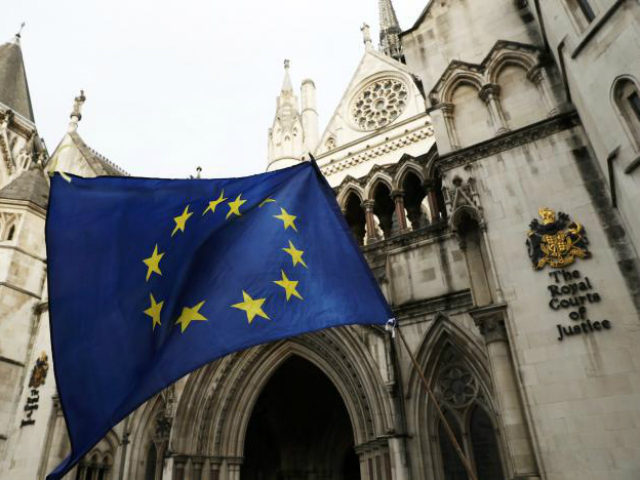(Reuters) – Once Britain triggers its formal divorce from the European Union by invoking Article 50 of the Lisbon Treaty, there is no going back on the decision, the British government’s top lawyer told the High Court on Monday.
As Britain moves towards exiting the world’s biggest trading bloc after a vote that spooked global financial markets, there is considerable debate over how one of the most complex negotiations in recent European history will work.
The government is facing a legal challenge by claimants who say that only parliament can decide when, how and whether to trigger the formal divorce by invoking Article 50.
Prime Minister Theresa May’s government says it has the right to decide when to start the divorce and that Article 50 will be invoked by the end of next March, ushering in a two-year negotiating period to decide Britain’s exit terms.
At a hearing of the challenge, Attorney General Jeremy Wright told the High Court that a notification invoking Article 50 – probably with a letter from May – was irrevocable.
“We do not argue that an Article 50 notice can be revoked and we would like the court to proceed on the basis a notification is irrevocable,” Wright told the court.
Asked from the judges’ bench if that meant there was no such thing as giving conditional notice, Wright said: “We accept that.”
His guidance appears to resolve one of the biggest questions of the Brexit negotiations: Whether Britain could at some point decide to revoke its intention to leave after negotiations begin.
Article 50 of the European Union’s 2009 Lisbon Treaty, which was drafted by a former British ambassador to the EU, has never been used, providing no legal precedent for how it works.
Turnout in Britain’s June 23 referendum on EU membership was 72.2 percent. A total of 17.41 million people, or 51.9 percent, voted to leave the EU; 16.14 million, or 48.1 percent, voted to remain.
May, who has said “Brexit means Brexit” and that she will make a success of Britain’s exit, suggested earlier this month that those arguing that parliament should first approve triggering the divorce were “not standing up for democracy, they’re trying to subvert it”.
LEGAL CHALLENGE
The argument for parliamentary approval before invoking Article 50 is based on an analysis of the authority for EU law in the United Kingdom. Under this reasoning, EU law applies in Britain because of the European Communities Act of 1972, so the executive cannot undermine rights given by parliament by triggering Article 50.
Government lawyers dispute that and say the executive alone has the right to notify the EU of Britain’s intention to leave. The government has rejected a petition signed by more than four million people demanding a second referendum.
Wright said there was an established principle that governments had the right to make or withdraw from international treaties using the ancient power known as royal prerogative.
He said the argument from the claimants was not a narrow legal challenge and suggested they were seeking to overturn the referendum result.
“It seeks to invalidate the decision already taken to withdraw from the EU and for the decision to be re-taken by parliament,” Wright said.
Lord Chief Justice John Thomas, Britain’s most senior judge, is overseeing the arguments. A verdict is expected by the end of the month. It is likely that the matter will be appealed to the British Supreme Court for a final decision before the end of the year.
If the court challenge is successful, the government could be forced to pass legislation authorizing Article 50 to be triggered, requiring a vote by lawmakers, the majority of whom voted to Britain to remain in the EU.

COMMENTS
Please let us know if you're having issues with commenting.